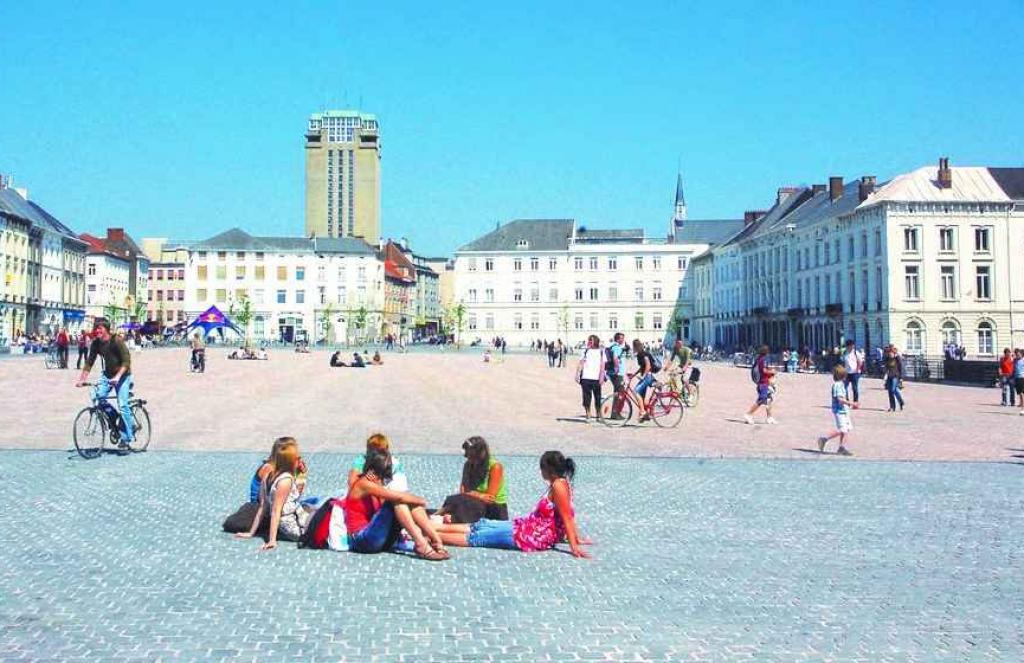Thessaloniki gets ready for its metro launch in November
The underground rapid transit lines have been under construction for almost two decades due to various project delays
 TheMayor.EU logo
TheMayor.EU logo 
Students have a very hard time to find accommodation in Ghent as the city lacks almost student 10,000 units, Source: City of Ghent
The move came as part of an action plan to fix the city’s housing crisis and plug the gap between the housing supply and students' demand for accommodation
After months of deliberation, authorities in the Belgian city of Ghent have finally introduced an action plan to help tackle the student housing shortage. One of the cornerstone measures includes asking universities to prepare a housing strategy every time they expand their programmes.
The student housing shortage was first identified in concrete terms after the study commissioned and published a study on student housing last summer. The study identified an approximate shortage of housing for around 10,000 students.
Now, local authorities have decided to take an active role in shaping the local housing market, by creating an ecosystem of cooperation between landowners, developers and educational institutions. The idea behind the move is to segregate students from the general housing market, as every educational season, they drive up demand and push out regular Ghent citizens from single-family homes and city apartments.
According to the study, over the last 20 years, the number of students in the city has increased by 34,000. Meanwhile, in the same period, Ghent has gained only 3,400 recognised student accommodation units.
Thus, the deficit has been handled by the private rental market, with over 59% of all students living in rented accommodation - around 41,000 people. A further 36% commute from neighbouring towns and 4% live with their parents in the city.
At the same time, around a quarter of all students live in a rented house or apartment, taking up about 3,700 residential units. Quite notably, half of the international students tend to prefer living in student accommodation with just 18% renting out on the private market.
According to a statement by the city, students have no other choice but to move into rented accommodations on the private market – the city simply lacks student housing. This is why authorities want to tackle the issue on two fronts, providing student accommodation for existing demand and ensuring there is a cap on future expansion.
First of all, local institutions want to act as a matchmaker between landowners, educational institutions and the private sector. Authorities will identify suitable land and then reach out to private investors to try and get a student housing project off the ground.
At the same time, they would ask local educational institutions to commit to a housing plan whenever they want to expand their educational offers. In many ways, this point is grounded in the fact that Ghent, despite its large educational institutions, is a relatively small city, with a population of just 260,000. This means that the student population has the potential to affect the local housing market in a very real way.
Finally, the city also wants to regulate the management of student accommodation to ensure the coexistence of newcomers and the locals. This decision is reminiscent of an initiative from December when authorities commissioned a series of murals on a residential street. The murals were aimed at strengthening the street community, as the previously quiet residential street has started to turn into a crowded public space.

The underground rapid transit lines have been under construction for almost two decades due to various project delays

Now you can get your wine in Talence by paying directly in Bitcoin

That’s because the state has to spend money on updating the railway infrastructure rather than subsidizing the cost of the popular pass

Rethinking renewable energy sources for the urban landscape

The examples, compiled by Beyond Fossil Fuels, can inform and inspire communities and entrepreneurs that still feel trepidation at the prospect of energy transition

Now you can get your wine in Talence by paying directly in Bitcoin

The 10th European Conference on Sustainable Cities and Towns (ESCT) sets the stage for stronger cooperation between the EU, national and local level to fast track Europe's transition to climate neutrality.

At least, that’s the promise made by the mayor of Paris, Anne Hidalgo

The underground rapid transit lines have been under construction for almost two decades due to various project delays

At least, that’s the promise made by the mayor of Paris, Anne Hidalgo

Hostal de Pinós is located in the geographical centre of the autonomous region

Despite its church-y name, the district has long been known as the hangout spot for the artsy crowds

Urban dwellers across the EU are having a say in making their surroundings friendlier to people and the environment.

Forests in the EU can help green the European construction industry and bolster a continent-wide push for architectural improvements.

Apply by 10 November and do your part for the transformation of European public spaces

An interview with the Mayor of a Polish city that seeks to reinvent itself

An interview with the newly elected ICLEI President and Mayor of Malmö

A conversation with the Mayor of Lisbon about the spirit and dimensions of innovation present in the Portuguese capital














